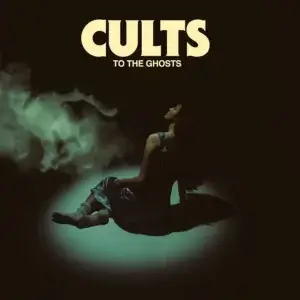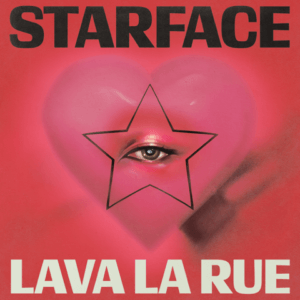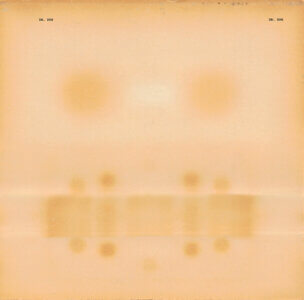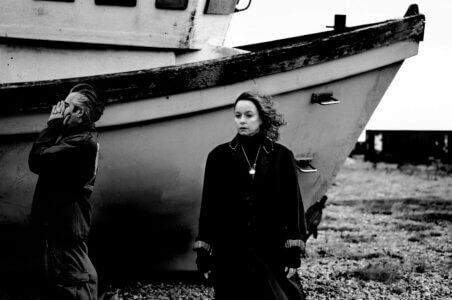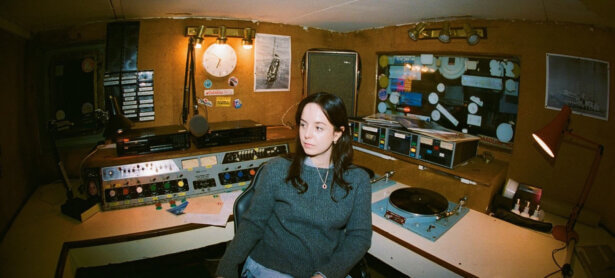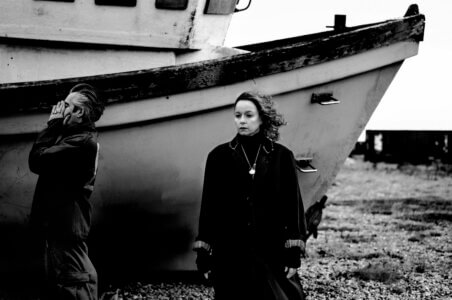Interview With Drew From Single Mothers

Not many musicians moonlight as gold prospectors hunting for the real thing, instead of the number of units sold variety. But Drew Thomson did. Of course, that was before he came out of the north woods and rejoined his band, Single Mothers. Now they’ve released a new album, Negative Qualities, a punk whirlwind of shouting dissatisfaction and sarcastic criticism moored to energy-filled rhythms and little moments that stick with you. It’s an album that feels a whole lot like the start of something. Northern Transmissions wanted to catch up with Single Mothers before anyone had a chance to be tempted away by the lure of the quiet forest, and Alice Severin was able to talk to Drew Thomson about the music and where the feeling comes from.
NT: Hello Drew, where are you and how are you?
DT: Good. I’m just at Fun Fun Fun Fest right now, so it might be a little loud.
NT: How’s it going down in Texas? How is the tour?
DT: Yeah, it’s been great so far. We just played a show here in Austin. So now we have the day off and we’re going to go see METZ play the main stage.
NT: So the new album is out, Negative Qualities. You’ve been working on this for a while, how does it feel to have it finally out in the world?
DT: It’s great. It’s been a long time – we’ve been sitting on some of these songs for close to three years now, so it’s great to finally watch it come together.
NT: There are some great tracks on there. Marbles – with that hook and the line “I’m a hypocrite and I’m ok with it” has a way of just pulling you in. How did you come up with that? How do you work on things like that, to get that feel?
DT: Well, to be honest, like most of the lyrics are written on the spot, or in the studio while we’re going through it. It’s just…I don’t put a whole lot of thought into the writing process. It’s just whatever comes out, comes out. And that’s always how I’ve done it, and kind of how I’ll always do it, I guess, if that makes sense.
NT: It totally makes sense. But there is something sarcastic and cutting, but also self-aware about the words. It seems like it’s pointing out the difference between parading what you know, or think you know, and actually knowing something. Would you agree with that?
DT: Thanks. I try and be honest, and just write about whatever is going on at that time, or that day, or whatever, so, I don’t know, I’m glad it comes off that way.
NT: It’s got a spontaneous but also thoughtful quality to it.
DT: Well, I’m an introvert. (laughs)
NT: It’s seems like a lot of musicians are introverts, but then they go out on stage, and there’s that contrast. Do you feel that being on stage allows you to bring something out?
DT: Yeah. I think being on stage is great because it’s not like…I think part of it is you’re getting all that attention but the conversation is one-sided, right? Like it’s just me talking into a microphone and not really…It’s not like a normal interaction where you’re going out and having a conversation with people or something like that. It’s just you catching the attention and you get to kind of do whatever you want. People have to watch you because you’re on stage. Yeah, it’s interesting, it’s an interesting thing. But you know, then as soon as it’s done, you step off-stage and you go hide in a corner somewhere and hope nobody talks to you. It’s a weird dynamic.
NT: That’s a good point that it’s like a one-sided conversation, so you get to say all the things that you want to say without being stopped or interrupted.
DT: Yeah, exactly.
NT: I wanted to ask you about the cover. It’s almost like the kind of drawing you would see on a Greek urn but it’s also like a modern fight scene. Did you come up with that, do you have input into the art choices? And do you think it reflects what’s on the album?
DT: The cover is by an artist named Cleon Peterson, based out of LA. He does a lot of this really cool primal art and we saw it and thought, that kind of sums up the whole album right there. So we asked him if he would be cool with it, and he said yeah, so we used it.
NT: What about it do you think sums up the whole album?
DT: Well, to me, the way I first saw it, I thought it was just one guy, fighting with himself, and that’s what I see when I look at it. And that’s what I think the whole band is about. Basically, there’s just so much inner turmoil, in and out, members coming and going. So, kind of self-loathing. So I thought really that picture summed up all of that for me. I really liked it and everybody else did too, so.
NT: There’s another song on the new album, Half-Lit, which reminds me a little of Nirvana. There’s a mix of fury, and rhythm, and there’s a story and then there are hooks, too. Little moments that just have that feel to them. How did that song come to be?
DT: Well, we went to LA to record, and we recorded ten songs there. And then re-recorded them all in London. And when we re-recorded it, Mike had that riff for the song. We didn’t record it in LA, and we weren’t going to put it on the album, but once we got in the studio, we started playing with it. And he wrote the music, and that night I just put lyrics to it. And now it’s turned out to be like our favorite song. It’s very spur of the moment – it wasn’t going to be on the record, but I’m happy that it is.
NT: I wanted to ask you how you write the songs – does it wind up being collaborative between you and the other band members or do you ever come in with things that are finished?
DT: It usually starts with a guitar riff or something, and it grows. We’ll usually get the music to a good spot, and then I’ll start writing lyrics or putting vocals on it. But other times we’ll all just spontaneously write a song just at practice, and like it. We don’t really have a formula, it’s kind of whatever happens, happens.
NT: How was it when you went to LA to record?
DT: It was a learning experience for sure. We had never worked with a producer before, and we had only ever recorded in basements, with our friend Simon. We learned a lot about work ethic, and it’s not all just fun and games. When you’ve got deadlines, and people paying for your record to be made… It didn’t work out. Our drummer quit halfway through that, so we didn’t…but we learned a lot, I guess. (laughs) It is what it is.
NT: It’s a lot of pressure. Do you think you’d work with a producer again?
DT: Yeah, probably. We didn’t work with a producer in London, we just did that one ourselves. But yeah, it’s nice to have someone else’s opinion, and it’s nice to have someone else to get mad at too, who’s not in the band. Yeah, it’s an important step.
NT: I have to ask you about your gold prospecting experiences. You’re here now, but you packed it all in for a few years, and went off to the wilderness. What was that like?
DT: It was really, really fun, and really, really interesting. My aunt and uncle have been prospecting for about ten years in Ontario, so I worked with them for about three years. They’re still doing it and when I’m not on tour I still go up there sometimes. I’ll stake some claims, or do field visits, or just work. It’s a really nice, calming thing to be able to do after a tour, after being in a band with five guys for one or two months. To be able to go work in the forest by yourself for a couple of weeks, it’s a really nice thing to be able to have.
NT: It’s such a different experience. Do you think you bring that back with you?
DT: Yeah, definitely. It’s a culture shock for sure, going up there, and then coming back. I remember the first time I went up, I didn’t come back to London for like eight months. I was just up north by myself, just completely. And it’s weird, even the noise of traffic and cars and people outside, you just get so used to quiet that when you’re back to reality, it’s a shock. I love being in Toronto, in London, but I also love being up north and I love being able to travel all over. It’s just experiences that I think are important and it’s really helping to shape us. I’ve got a lot more experience under my belt so I’m very happy about it.
NT: Do you think you’re going to write about it for the next album?
DT: Yeah, I’m sure some of that stuff will seep into songs, for sure. It’s a big part of my life.
NT: I read somewhere that you’re going to be writing some short stories?
DT: Oh, yeah. I do that for fun. I’ve got a couple of zines that I put out. It’s called Essential Apathy. They are not only about up north but just short stories in general, a little bit of poetry and stuff.
NT: Is there a website? How would people get a hold of that?
DT: I’ve got a Facebook page called Can’t Lose. I do letterpress printing with my girlfriend. And we have a webstore. I’ve got an online store, it’s down right now, because I’m on tour, but I usually put zines and prints up there.
NT: How did you choose the band name, Single Mothers?
DT: Well, my mom is a single mom, and we were talking about growing up and raising a kid unexpectedly. It got me thinking that starting a band is kind of like the same thing – you only ever have half of what you need at any given time. And you choose to put this thing out in the world, and struggle with it and watch it grow. And it’s never easy, it’s always hard, but you choose to stay with it, so. I thought Single Mothers was a neat metaphor for a band, so that’s where it comes from.
NT: Punk. Your band is punk, post-punk. But that kind of energy seems to be back for people, they’re appreciating it more. Do you think there’s a reason why people are gravitating towards that kind of sound again?
DT: I’m not sure. It’s all cyclical, I guess. People get tired of listening to mellow music, and then kind of revert. I’m not sure. The recession probably had something to do with it. People have a lot of reasons to be pissed off or whatever. I don’t really know. I never really listened to too much punk. None of us did really. We just ended up really liking to play it. That’s kind of how we got into it, I guess.
NT: And five albums that you come back to, that you find inspiring.
DT: I was just thinking about this.
Michael Jackson – Bad
The Streets – A Grand Don’t Come for Free
The Replacements – Sorry Ma, Forgot to Take Out the Trash
The Hold Steady – Almost Killed Me
Clueless – soundtrack album
Latest Reviews
Tracks
Advertisement
Looking for something new to listen to?
Sign up to our all-new newsletter for top-notch reviews, news, videos and playlists.


